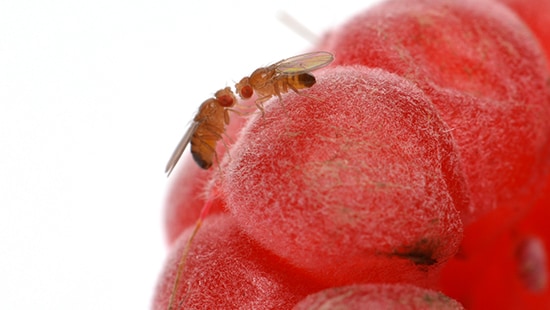Fly Control and Prevention

Since large and small flies are an indicator of a sanitation or structural problem within your facility, removal of the breeding source is the only permanent means of avoiding an infestation. An outside-in approach is a proven strategy for commercial fly control, and there are also steps you can take to avoid an infestation.
Restaurant Checklist for Fly Control
- Inspect incoming fruits and vegetables for signs of rot and small flies and cover them upon receipt.
- Store produce under refrigeration when possible or in sealable plastic tubs.
- Rinse out empty bottles and cans, and clean garbage containers daily. Use plastic liners.
- Eliminate spillage of garbage and keep garbage areas clean and away from the building, when possible, close receptacles with tight-fitting covers.
- Keep the exterior dumpster pad free of spillage and debris.
- Repair areas damaged by water.
- Eliminate standing water, weeds, tall grass, and other excessive vegetation near the facility.
- Clear clutter and items stored on the ground.
- Inspect and seal doors and keep them in good condition. Keep doors closed or use double-door vestibules, air doors, or plastic strip doors where needed.
- Install mesh screens on any open windows.
- Eliminate interior standing water and accumulated condensation and use fans in areas conducive to standing water.
- Replace cracked floor tiles and missing grout, and repair plumbing and drain problems.
- Regularly inspect for and repair cracks in flooring to prevent seepage below.
You're not on site 24/7, so be sure that the people who are in the facility know how to help prevent flies. Train your staff to:
- Clean and sanitise floors and around drains, disposals, and sinks daily:
- Inspect and sweep thoroughly under appliances, counters and cook lines.
- Scrub floors using a stiff brush with an industrial floor cleaner. Squeegee all debris and dispose of the trash; do not dispose of organic debris in drains.
- Clean using a registered sanitiser approved for food and non-food surface application. - Maintain drains:
- Clean drains and traps weekly using an industrial drain cleaner and a stiff long-handled brush.
- Use a “snake” device in clogged drains to clean out all gelatinous material. - Dispose of rotting organic matter.
- Perform periodic deep cleaning beneath plumbing lines and equipment.
- Clean rags and mop heads daily and before storing.
Depending on the types of flies that are present, different actions may be required for treatment and elimination. As you prepare to address commercial fly problems, learn about common types of small flies, facts about large flies, and the food-safety risks of large flies. If flies persist after a thorough cleaning, Ecolab is ready to help with treatment and ongoing protection.



